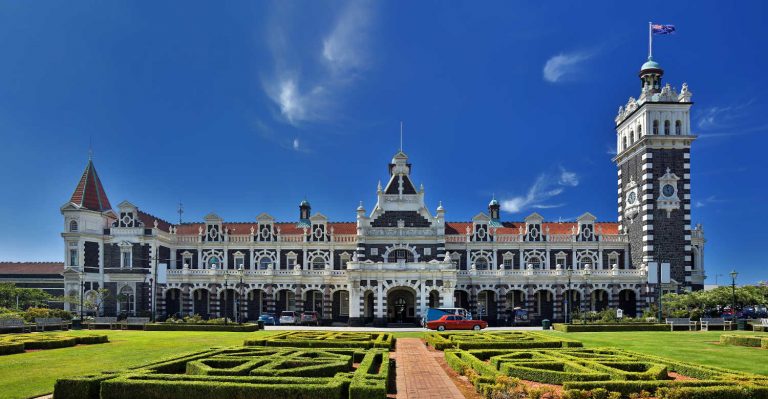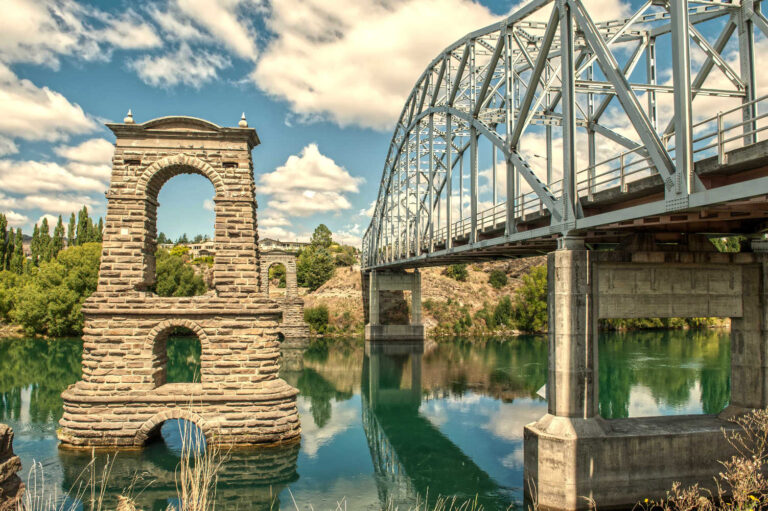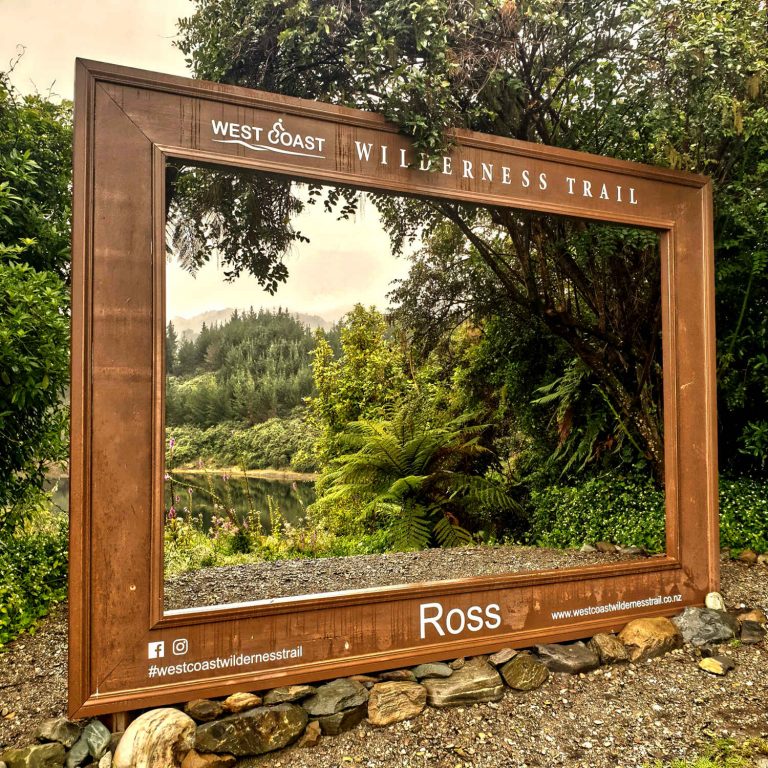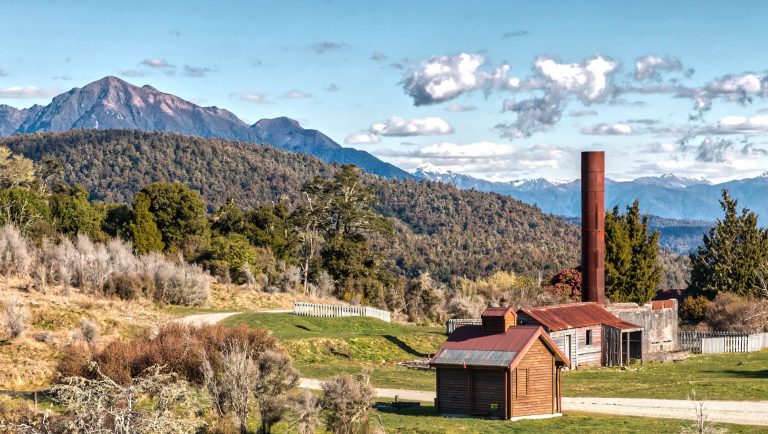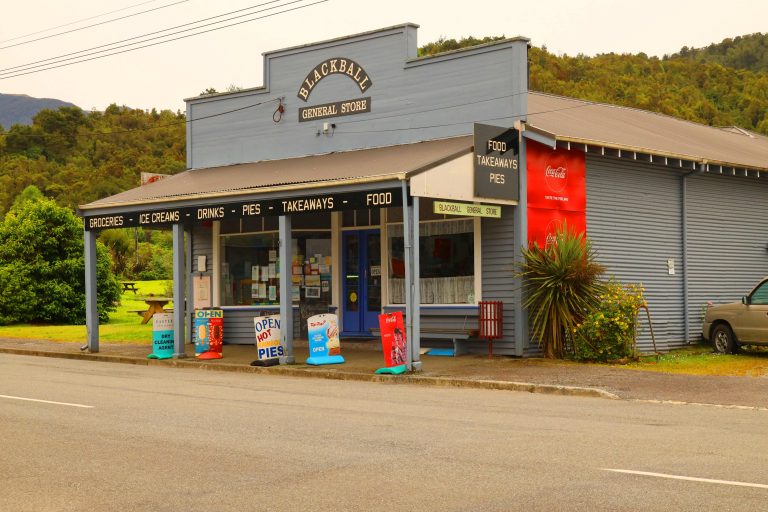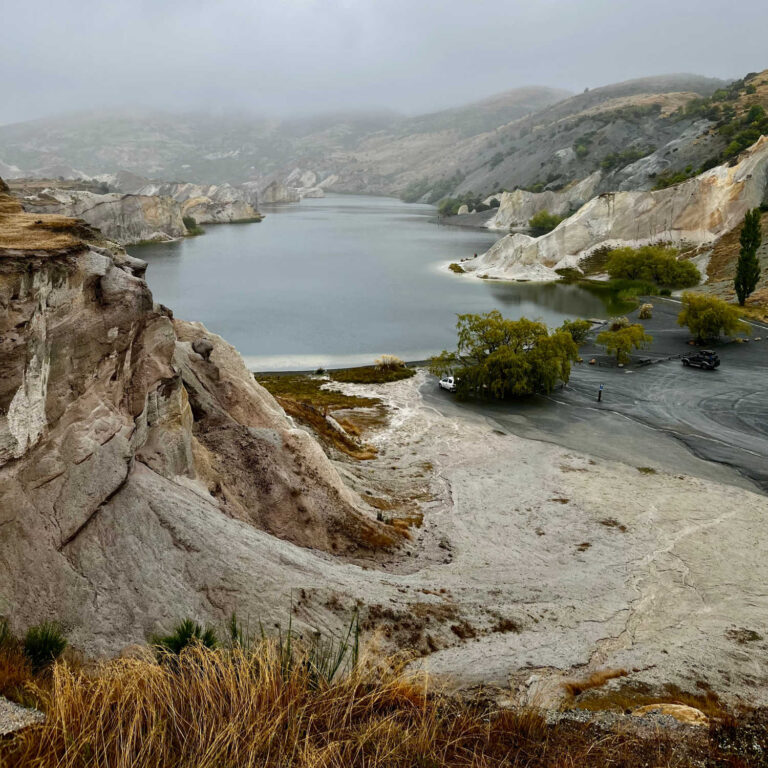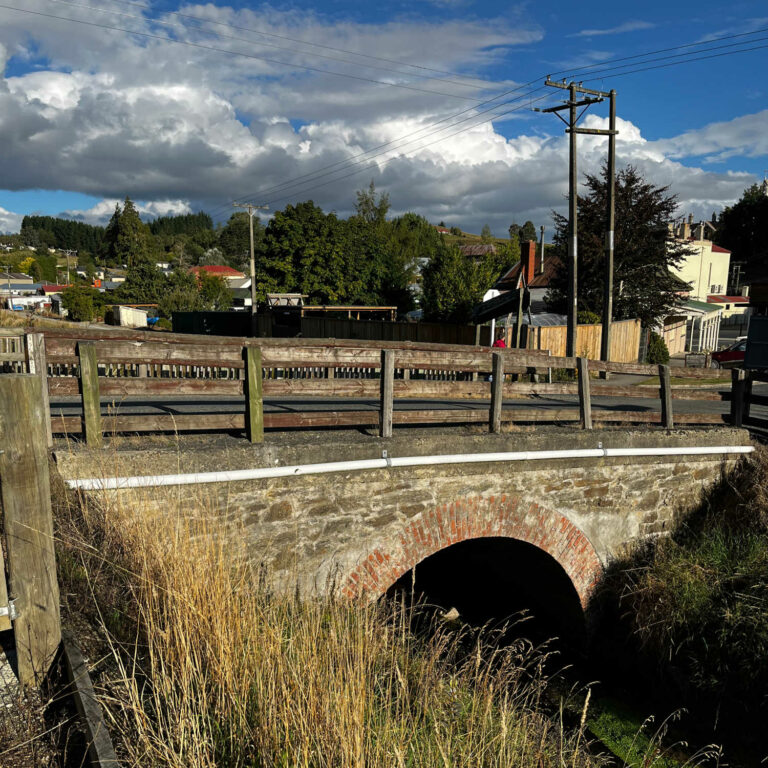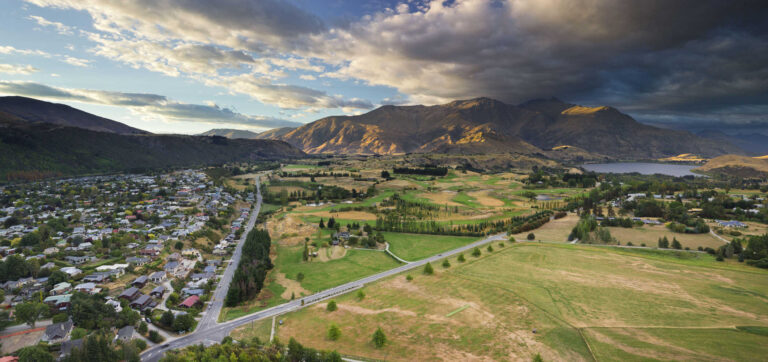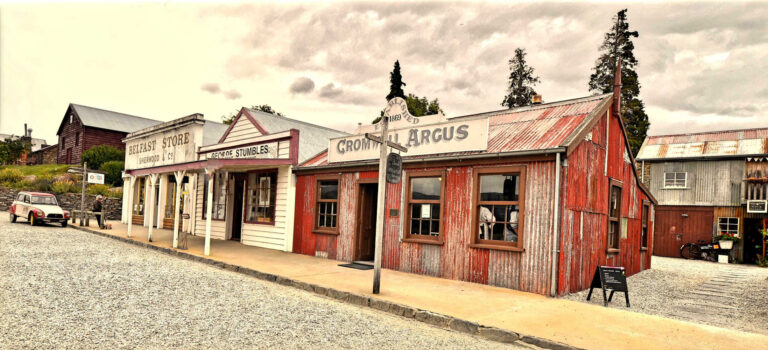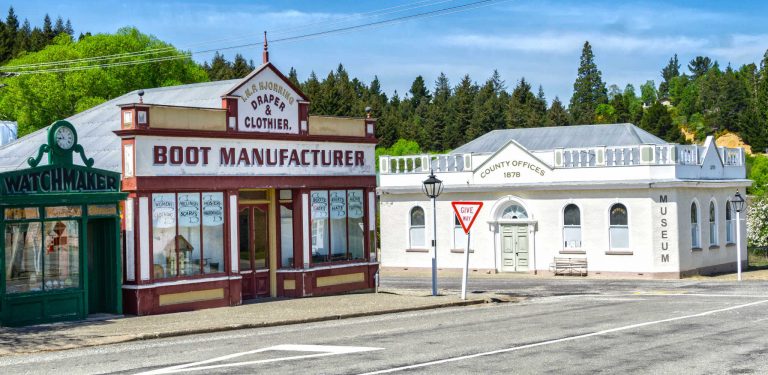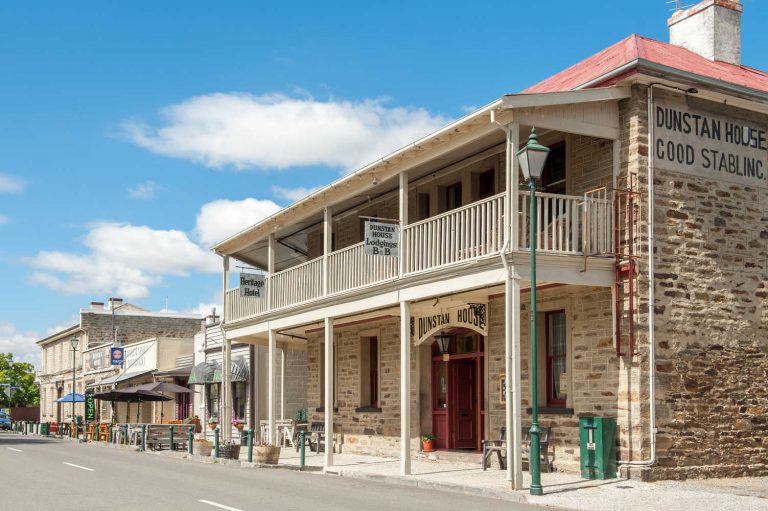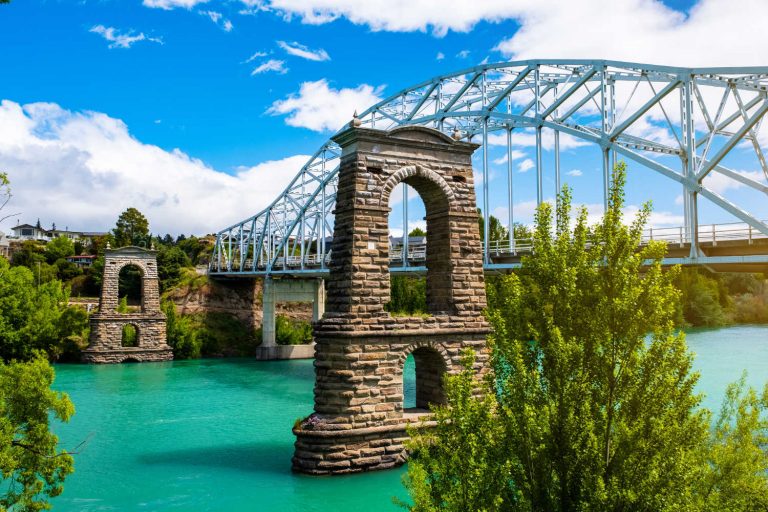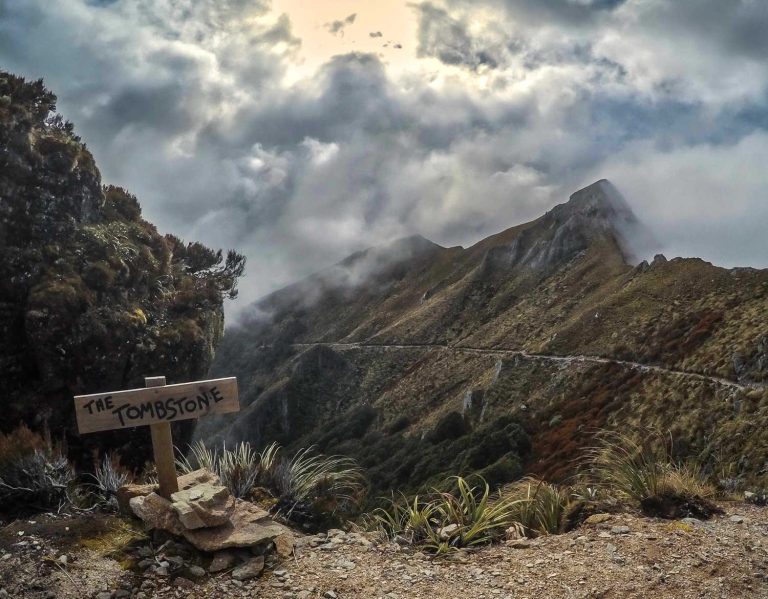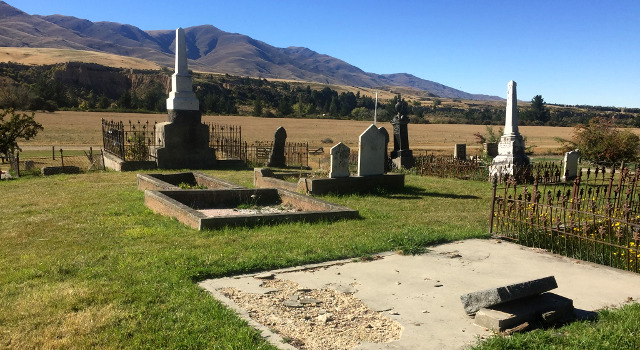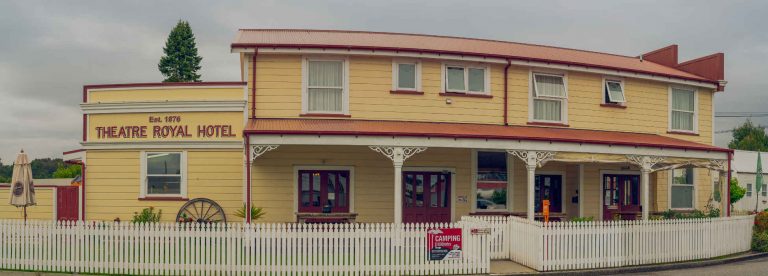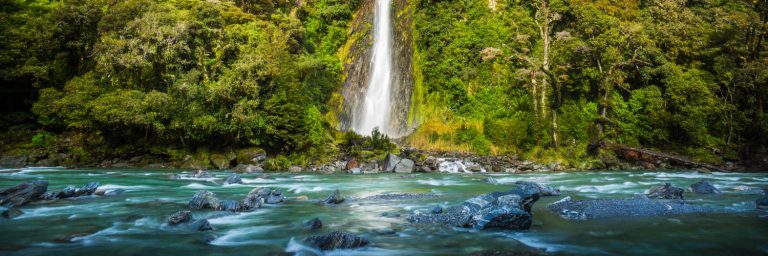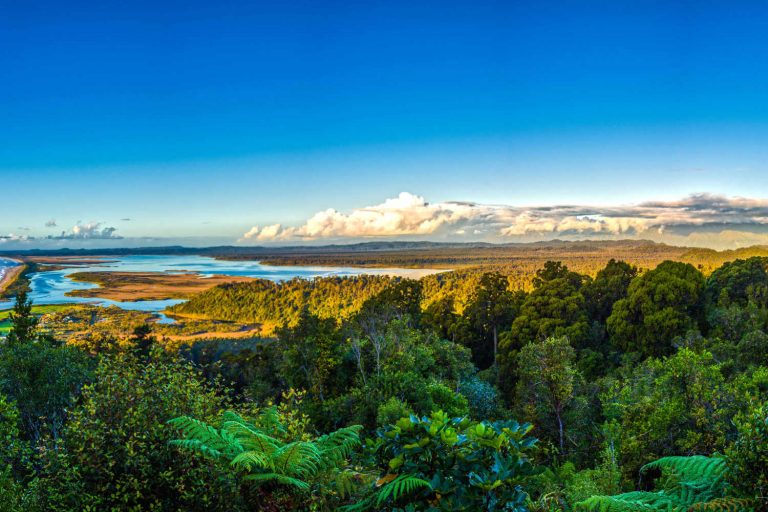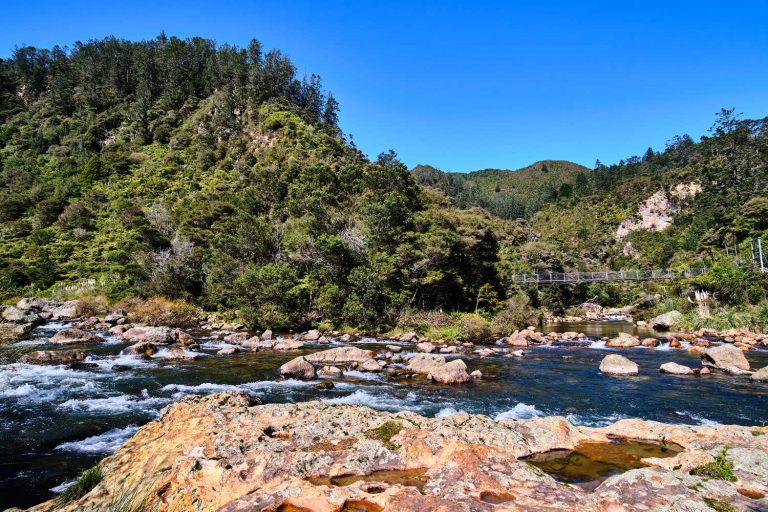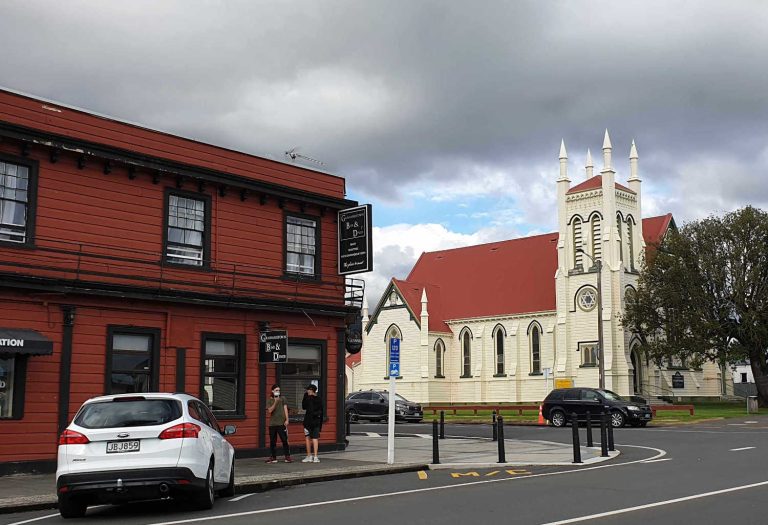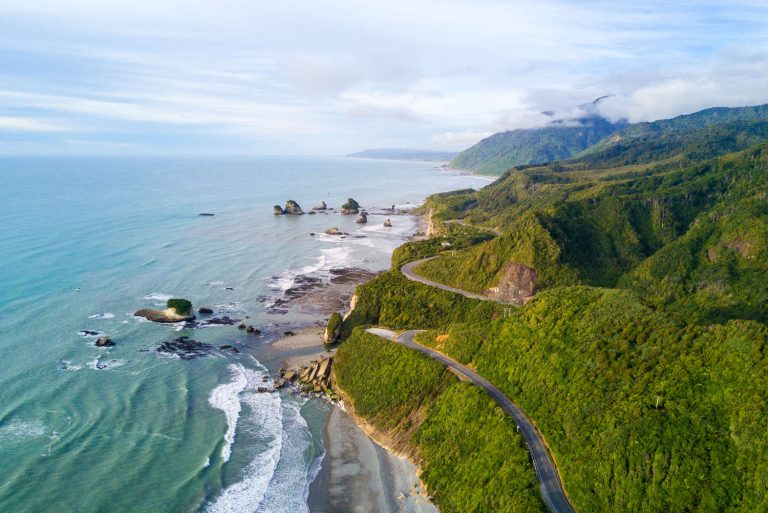Attractions and things to do exploring heritage trails
There’s gold in the’ hills … the lure of instant fortune. The rush was in full flood in 1861 with Gabriel’s Gully (Lawrence) where the gold fever spread its tentacles. Within a year 10,000 mines set up tents in Gabriel’s Gully. Evocative names Dead Horse Pinch, Serpentine and Lonely Graves echo the unfulfilled optimism of 19th century prospectors. Visitors are intrigued by the relics, the stone shelters and the evidence of arduous hard physical labour to extract gold. Attractions range from walks among the sites, restored main streets and museums carefully documenting the story of the search for gold. The magnificent scenery of Central Otago and the lush forest of the West Coast is a bonus.
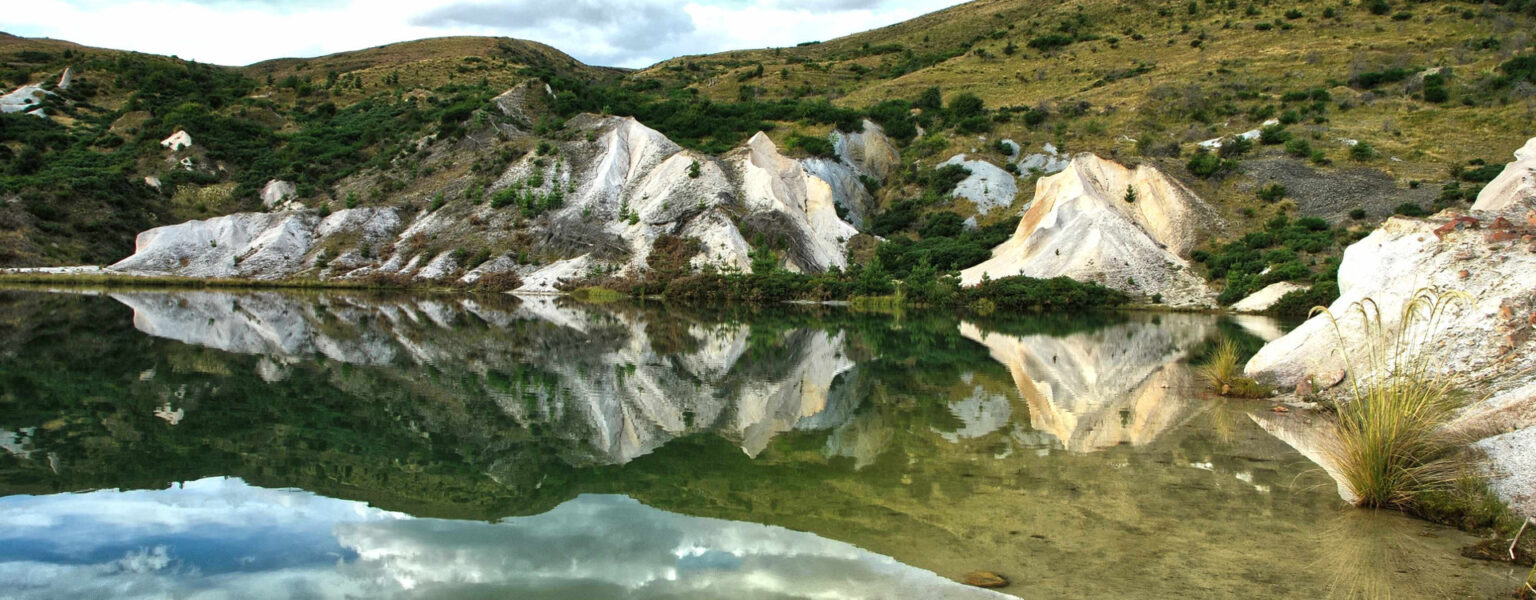
HIGHLIGHTS OF THE SOUTH ISLAND GOLD FIELDS (19th century heritage trail)
There are plenty of places to explore with vineyards, orchards and galleries to tempt visitors to linger a while longer.
- An enormous outdoor museum of rusting machinery half buried in tussock or melting into regenerating forest hints at the technology used to scour the landscape
- Poignant stone shelters, half collapsed buildings and cemeteries recall the lives of many whose fate was tied to the unforgiving Central Otago climate and terrain
- Landscapes moulded by the transformative power of massive water cannons blasting entire hillsides into oblivion
- Historic reserves and walkways unearth the stories of endeavour in the arduous search for elusive instant gold wealth in the 1860’s
- Go gold panning on the West Coast, South Island or Central Otago. Give gold prospecting a go with a traditional shovel and pan in the chilly alpine rivers.
There are over twenty documented gold mining locations in Central Otago alone. Along with the West Coast of the South Island gold mining techniques were part of the age of innovative machinery developments. The New Zealand gold rush jump started the nascent New Zealand economy with the rapid growth of Dunedin showcasing the wealth of gold brought to the emerging colony.
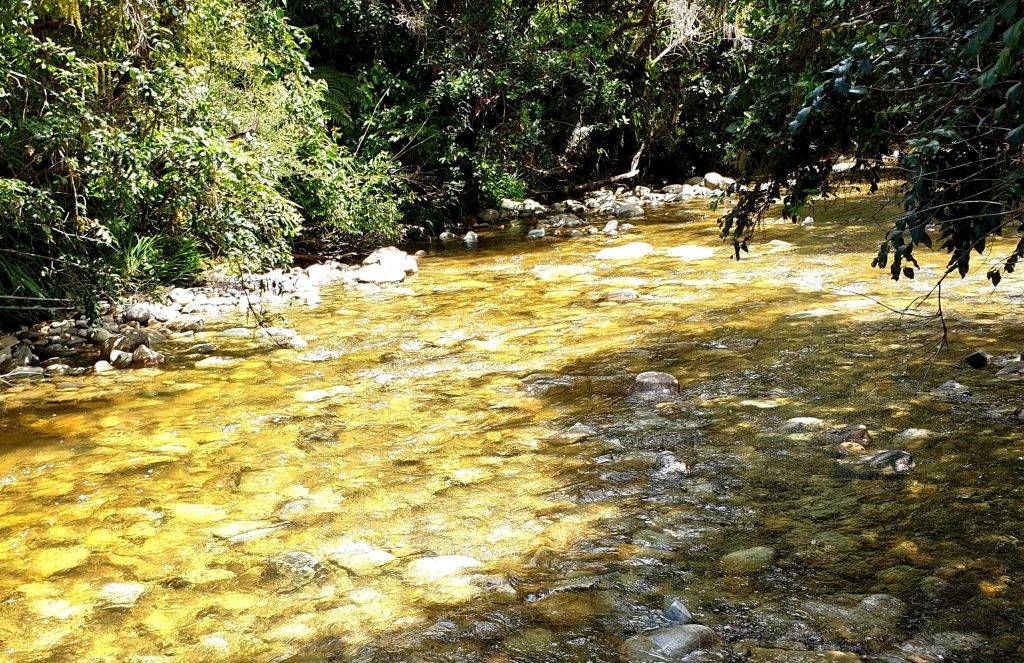

The Golden Progress Mine and Earnscleugh Dredge Tailings show how technology evolved during the rush. By 1867, around two million ounces of gold had been taken out of Otago.
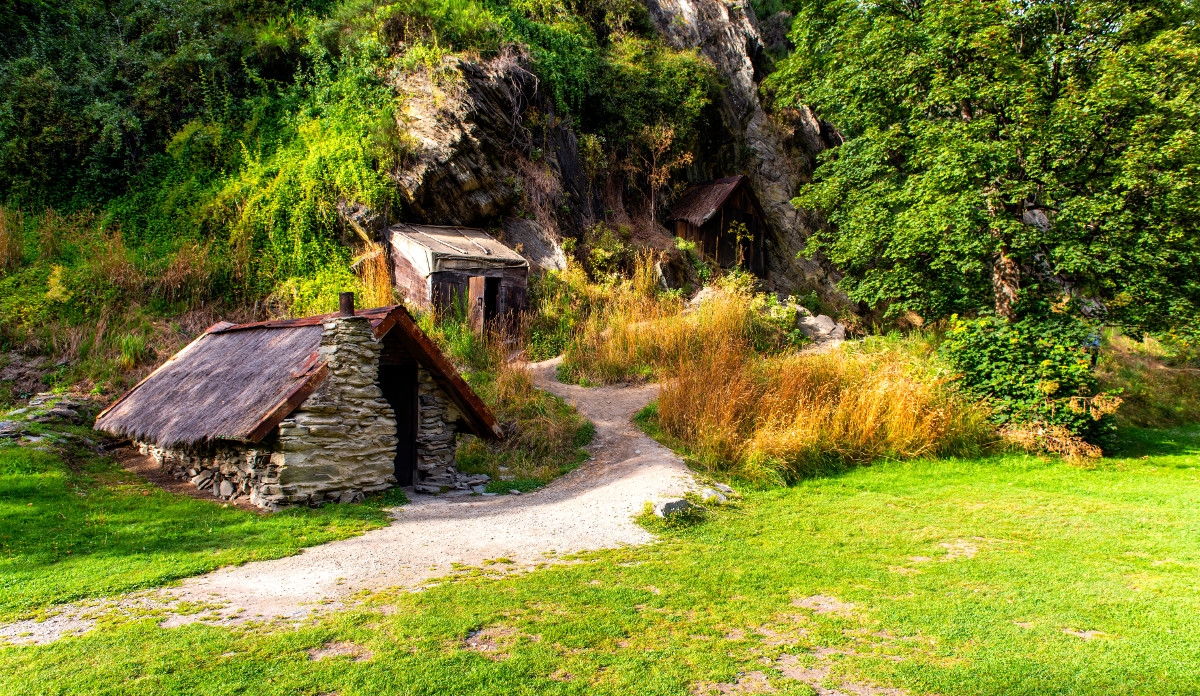
Where is the best location to find out about 19th century gold mining in NZ?
The easiest place to find out about 19thc gold mining fever is the tourist town of Arrowtown, Otago however there are numerous small villages from St Bathans to Blackball and Ross where authentic displays, relics and buildings have left a rich repository of stories.

Check out the museums in Alexandra, Lawrence.
Where to go to find out about life on the goldfields in NZ?
- Pretty attractive Ross, West Coast is an ideal choice for heritage fans with family. There are gold mining relics throughout the town precinct from a water cannon for sluicing hillsides to a poppet next to the heritage cottage. Explore Ross Things To Do & Places To See on the West Coast of the South Island.
- WAIUTA, South Island is the story of the industrial period of gold mining with the deepest mine in NZ. Now a West Coast ghost town. Waiuta Things To Do & Places To See – Best Bits is a remote evocative place.
- What’s so great about Blackball best things to do and see is the gold mining town that refused to die when the gold mines closed.
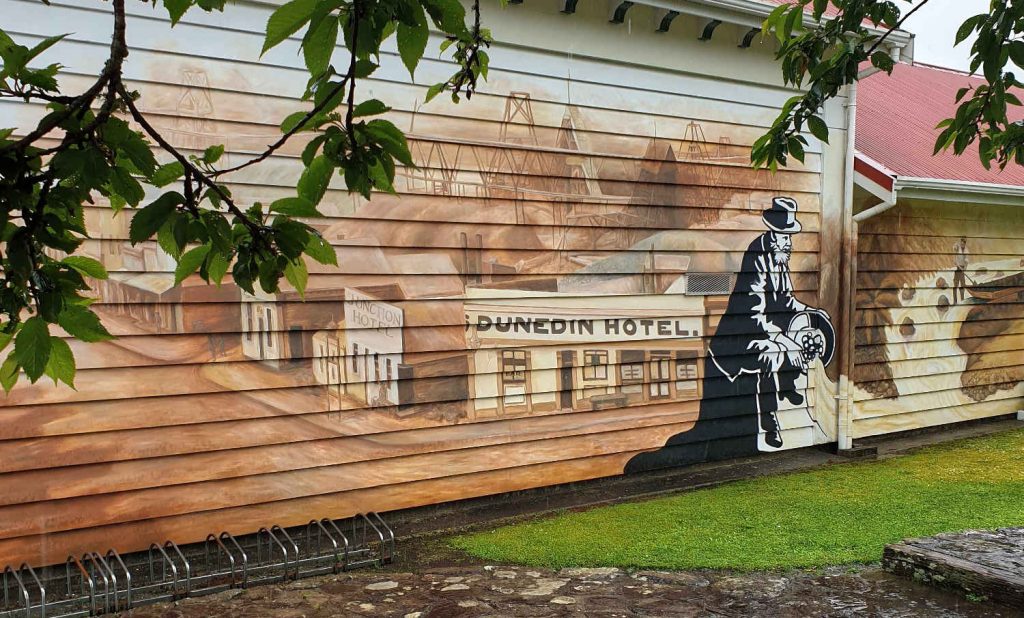
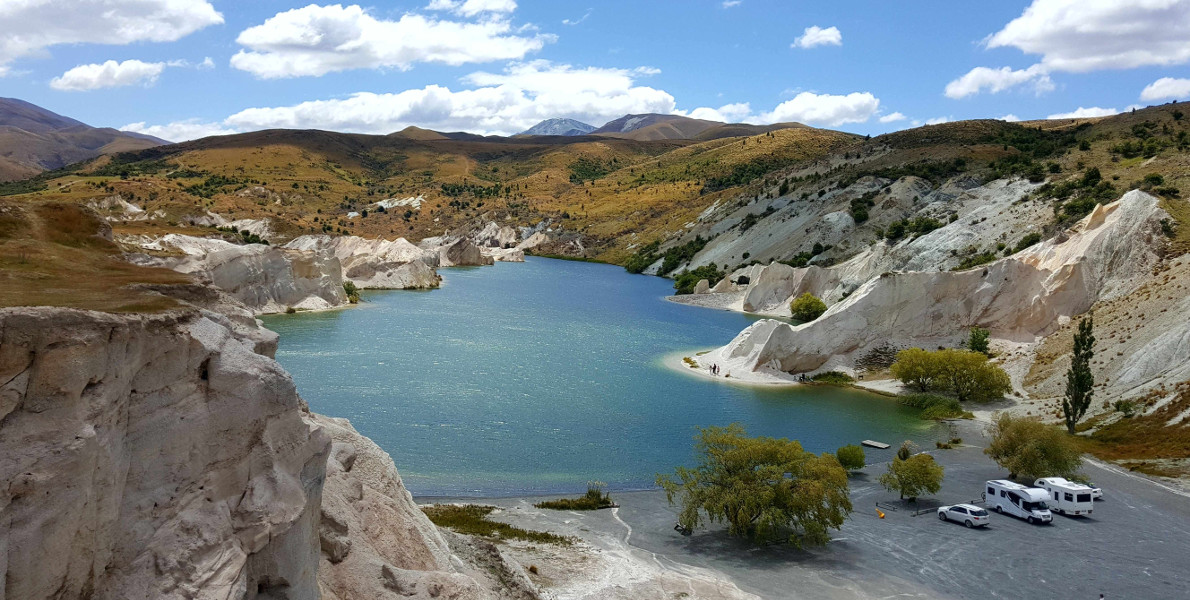
- Find out what happens to a town when a hillside disappears due to constant dredging in What’s so great about St Bathans, Central Otago and leaves in its place a magical lake.
- Discover stories of Chinese gold miners in What’s so great about Lawrence, Central Otago the quietly slumbering story that is echoed in the well known Chinese precinct of Arrowtown.
- Ghost cottages, relics and abandoned machinery echoes of the gold rush days of the 1800’s make Cromwell a magical place to explore the gold mining fever heritage of Otago. Cafes, gift shops and 19th century shop fronts encourage visitors to explore further afield. Bannockburn and Bendigo are scoured landscapes where the weapon was a massive water cannon.
Where is the best place to take kids or yourself to explore heritage gold mining sites in?
- Shantytown on the West Coast with its recreated gold mine town main street, kids will love the stagecoach rides. Shantytown is a tourist attraction.
- Arrowtown with its museum, restored Chinese mining settlement and proximity to the major tourist attractions of Queenstown.
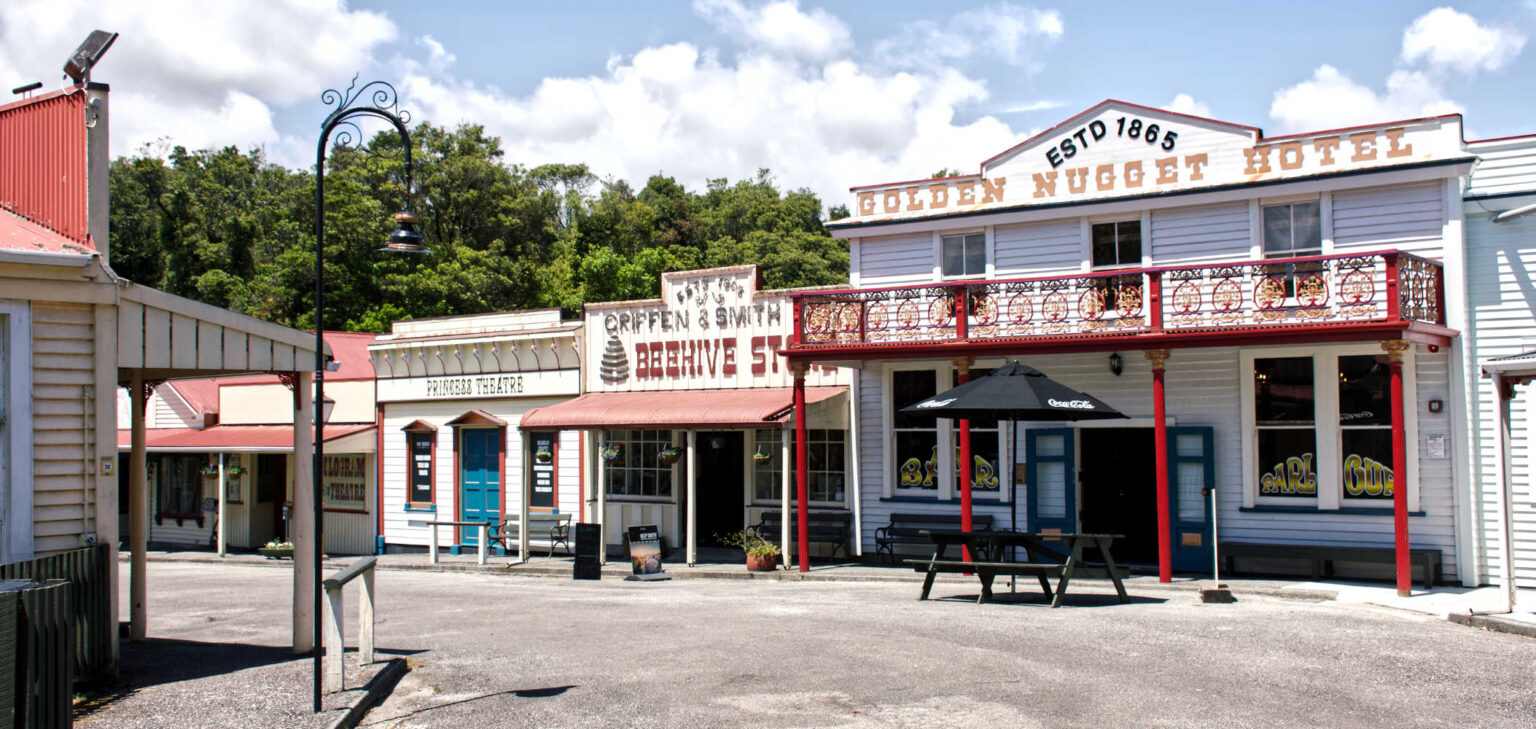

Collect your prospecting gold mining pan and try your luck in the Arrow River.
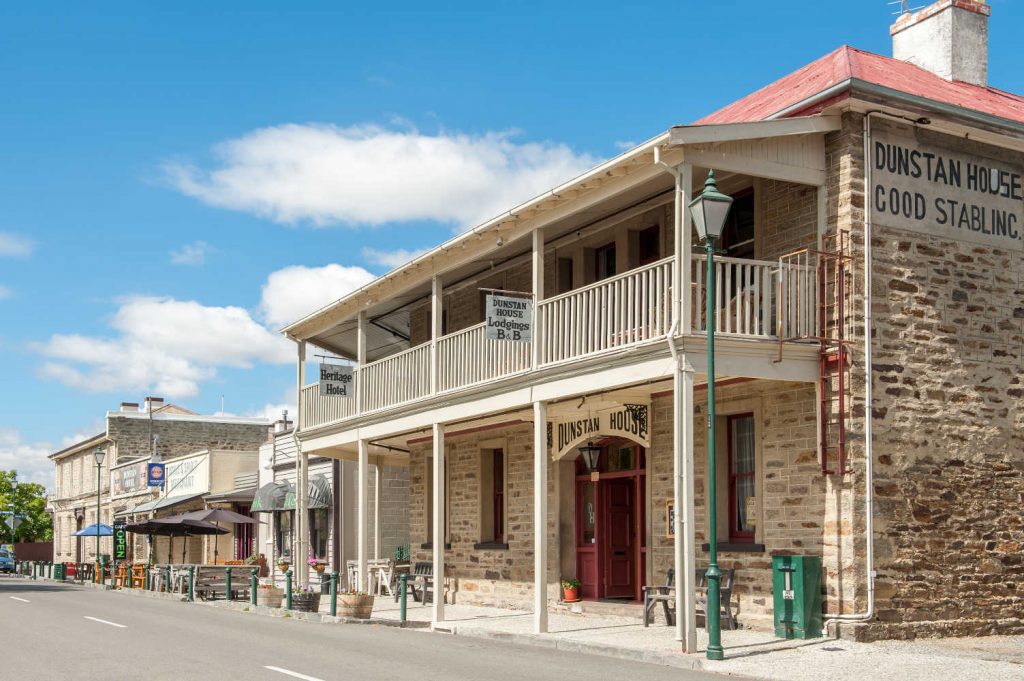
- Naseby with its pretty 19thc main street buildings, the nearby Kyeburn Diggings and the chance to go curling
- Clyde explore the historic buildings, precinct and two museums
- Goldfields Mining Centre is located near Cromwell. A recreated village with the option of gold panning located in the Central Otago’s famed Kawarau Gorge
How many days are needed to explore Central Otago heritage sites?
To explore Central Otago heritage sites allow between 3 to 5 days.
… read more Central Otago inland road trip: Queenstown to Dunedin – Best Bits.
Uncover side roads where nineteenth century gold miners once trudged in hope of fortunes made. Discover the diverse landscape moves from alpine tussock, then folded burnt yellow hills to rolling lush pastures dotted with sheep. The journey starts wrapped around the base of the Southern Alps, the Strath Taieri glacial valley and then follows ancient paths on the Maniototo plains, finishing in the lush rolling pastoral hills surrounding Dunedin. Visitors depart from Queenstown with its bustle as a premier tourist destination with the journey quickly diving into the heart of heritage Otago.
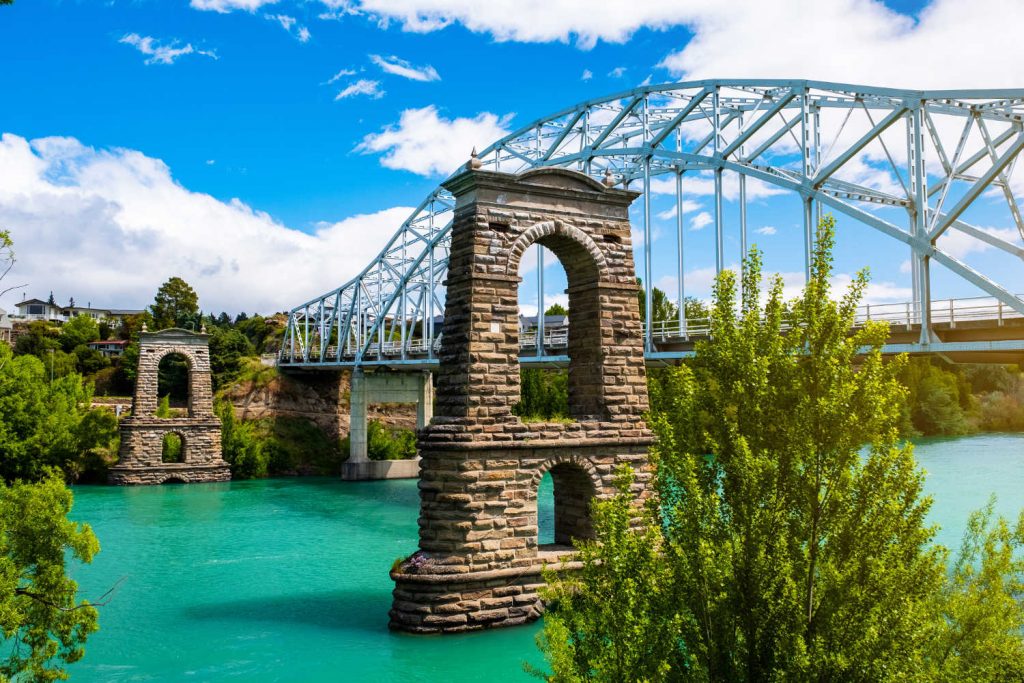
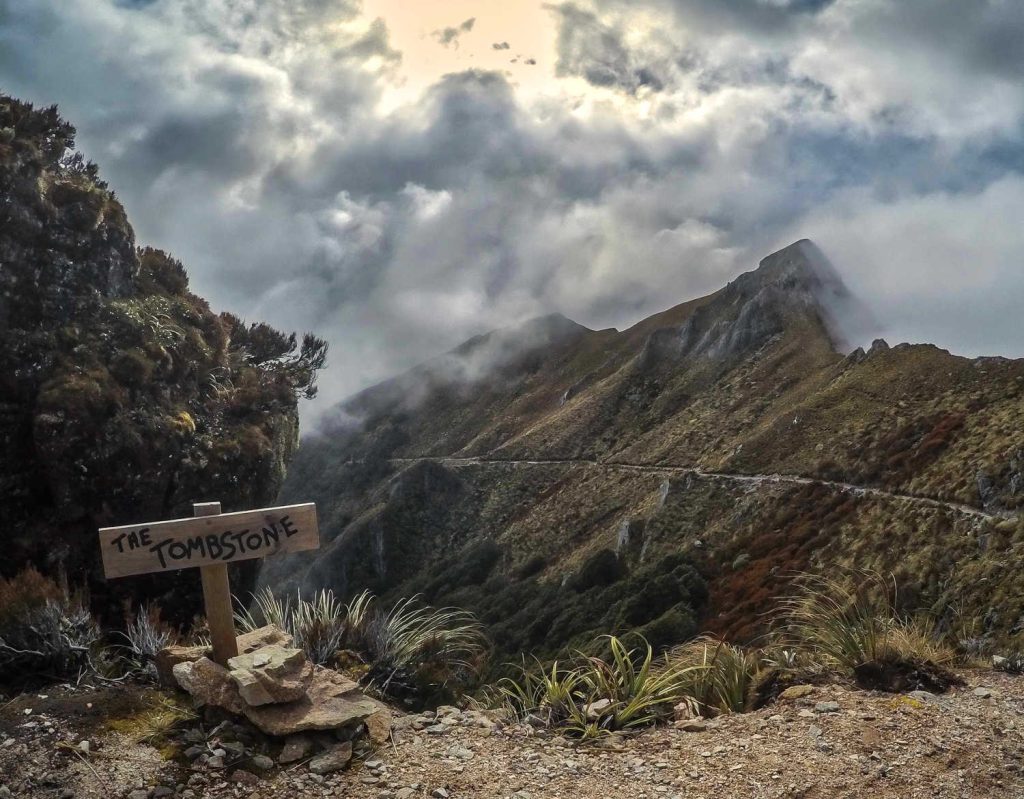
Where are the best places to go for ghost stories about 19th century gold mining in NZ?
- West Coast ghosts, cemeteries and quirky personalities – Best Bits
- Cemeteries Central Otago: trip attractions, things to see – Best Bits
Where to go gold panning in New Zealand?
- Go prospecting for gold in Department of Conservation designated sites (see below) with the opportunity to go camping where thousands have set up tents in the 19thc dreaming of striking wealth.

Where to get a gold pan & shovel on the West Coast, South Island or Central Otago?
- The nearby museum is the best place to start to look for your gold prospecting supplies in New Zealand.
How many days are needed to explore West Coast, South Island heritage sites?
Heritage, history, humongous scenery make for a lifetime of memories transversing the West Coast. Allow 2 – 4 days with the opportunity for detours to towns such as Kumara. What’s so great about Kumara, West Coast and a rock like no other. Londonderry Rock trail.
Is an easy track starting with lush, moss damp forest contrasting with large piles of tailing stones. The large mounds of stones are stark evidence of the destructive force and power of sluicing for gold. It is extraordinary to think the majority of stones were carefully stacked by hand. The weight of each stone is easily over 20 -35 kg. As you round another tailing and approach a narrow stone tunnel you are struck with the size of the Londonderry Rock. The rock is 8 m in height and estimated to be 3,500 tonnes. The now exposed rock was originally buried.
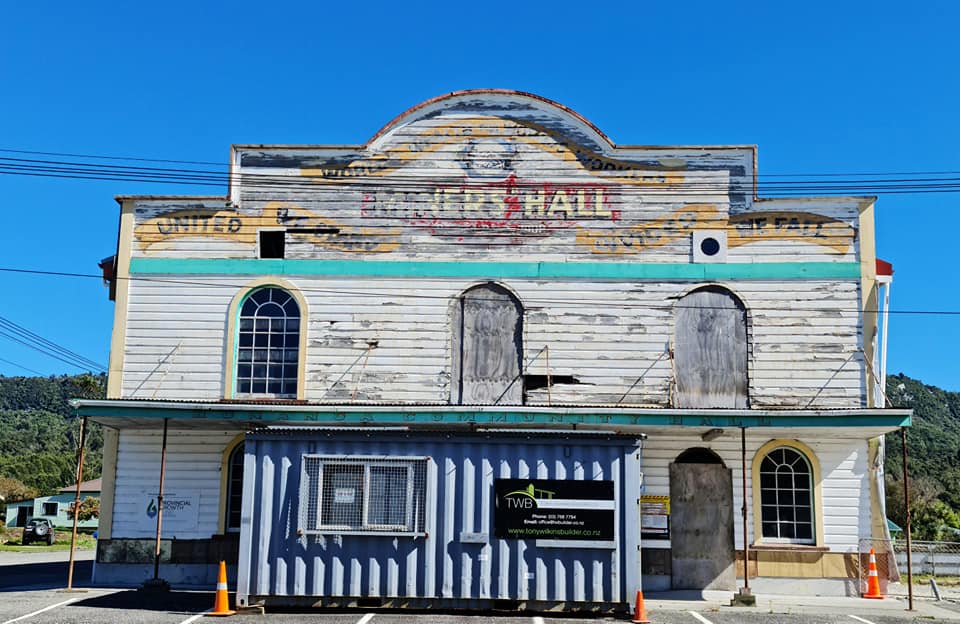
The story of mining on the West Coast is tied to coal and gold. Extractive industry is a key driver in the West Coast economy. HIghway robbery, desperate mining strikes for better working conditions and abandoned mines will be part of the journey’s story. You will look for towns that have melted into the landscape with only an abandoned cemetery as evidence of their existence. This is combined with dramatic scenery, extraordinary folded pancake rocks, soaring cliffs wrapped in native bush and the sea ever presence on one side. There is something for everyone on this road trip.
… read more about Great Coast Road, West Coast road trip Westport to Greymouth – Best Bits
And the story continues Greymouth to Hokitika – Best Bits
DEPARTMENT OF CONSERVATION, NZ designated gold fossicking areas
| Gold fossicking area | Permit number | Location | Operator |
| Aorere River A (GFA 13) | 42013 | Nelson/Tasman – Kahurangi National Park | NZPAM |
| Aorere River B (GFA 14) | 42014 | Nelson/Tasman – Kahurangi National Park | NZPAM |
| New Creek (GFA 15) | 42015 | Nelson/Tasman – Glenhope Scenic Reserve | NZPAM |
| Louis Creek (GFA 12) | 42012 | Nelson/Tasman – Glenhope Scenic Reserve | NZPAM |
| Lower Louis Creek | 55529 | Nelson/Tasman – Glenhope Scenic Reserve | Tasman District Council |
| Jones Creek (GFA 4) | 42004 | West Coast – Ross area | NZPAM |
| Jones Creek (GFA 5) | 42005 | West Coast – Ross area | NZPAM |
| Lyell Creek (GFA 6) | 42006 | West Coast – Lyell area | NZPAM |
| Britannia Stream (GFA 7) | 42007 | West Coast – Denniston area | NZPAM |
| Nelson Creek (GFA 10) | 42010 | West Coast – Greymouth area | NZPAM |
| Waiho River (GFA 11) | 42011 | West Coast – Westland Tai Poutini National Park | NZPAM |
| Slab Hut Creek (GFA 30) | 42030 | West Coast – Victoria Forest Park | NZPAM |
| Moonlight Creek | 42031 | West Coast – Southern Paparoa range | DOC |
| Shamrock Creek | 53804 | West Coast – Goldsborough (Waimea) – Kumara area | NZPAM |
| Twelve Mile Creek (GFA 20) | 42020 | Otago – Queenstown area | NZPAM |
| Five Mile Creek (GFA 21) | 42021 | Otago – Queenstown area | NZPAM |
| Arrow River (GFA 22) | 42022 | Otago – Queenstown area | NZPAM |
| Shotover River (GFA 23) | 42023 | Otago – Queenstown area | NZPAM |
| Gabriels Gully (GFA 33) | 42033 | Otago – Gabriels Gully Historic Reserve | NZPAM |
* Permit data from the NZPAM website (external site)
Otago Goldfields Heritage Trust
The Otago Goldfields Heritage Trust aims to develop, represent and promote the historical sites, trails and events of Otago. Its membership comprises communities from within the Otago Goldfields Park, with ex-officio representation from the Department of Conservation.
The Otago Goldfields Heritage Trail is promoted to provide a year-round attraction for people to appreciate the golden heritage of the Otago region. The Trust erects signposting to inform travellers of the goldfields Heritage Trail and the interesting sites en route as well as interpretation signs and brochures for the Nevis Valley and Thomson Gorge Road.
Otago Goldfields Heritage Celebrations have been held annually since 1987.
For several years a horse-drawn gold coach travelled to all of the Otago communities whose heritage is built on gold, with the individual towns holding celebrations to bring the gold days back to life. In 1991 the celebrations format changed, when the Trust staged its first cavalcade of horses, riders and wagons crossing the old Dunstan Trail. More than 200 riders joined the cavalcade.
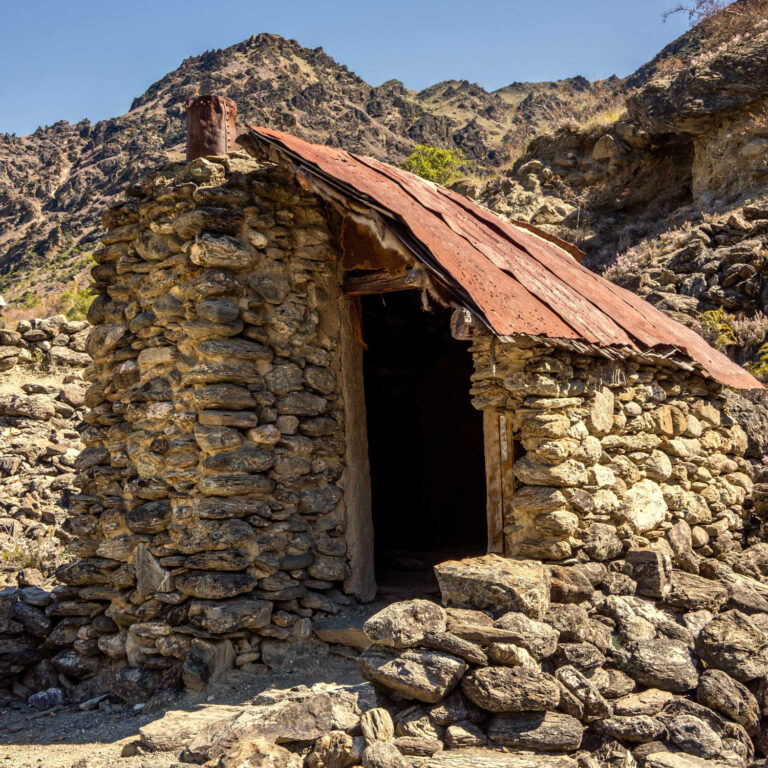
Now towns along the Heritage Trail take turns at hosting the annual celebrations. Cavalcades of people on foot, horseback or in horse-drawn wagons, weary from days travelling across the province via old miners trails, converge on the host town.
DONATIONS GRATEFULLY RECEIVED – Otago Goldfields Heritage Trust.
Check out the meticulous detailed brochures published by the Otago Goldfields Heritage Trust in the TRAVEL PACK SECTION.
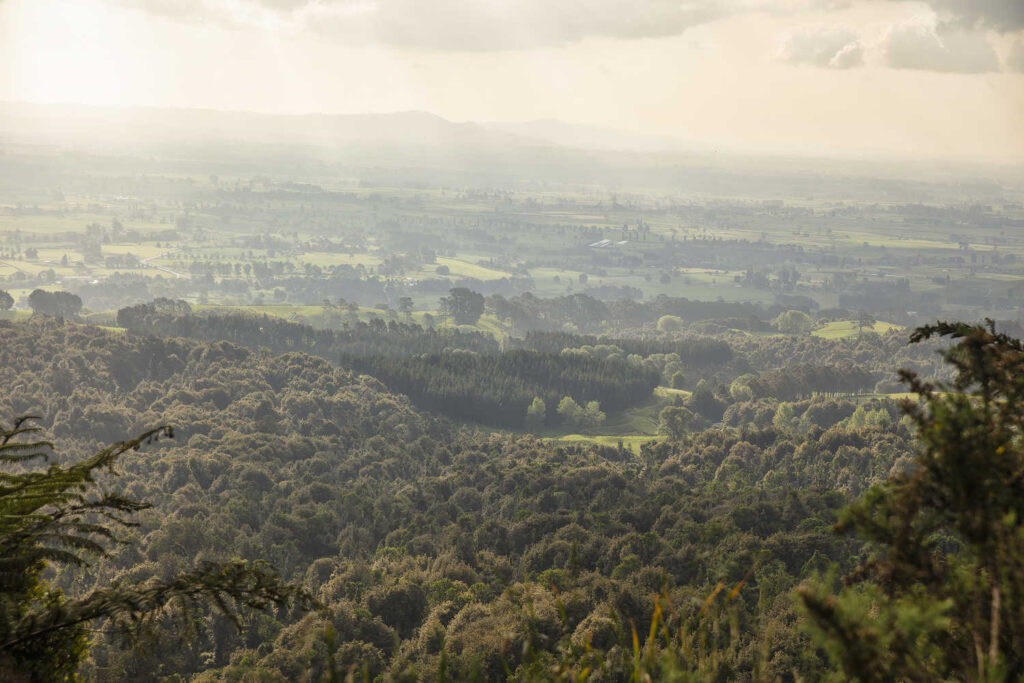
Are there any heritage gold mining locations in the North Island?
- The best places in the North Island, NZ to discover heritage gold mining sites are 10 reasons to visit Kaimai Mamaku Conservation Park & Karangahake Gorge – Best Bits and Thames, Coromandel.
TRAVEL PACK SECTION
- Want to know more about what to see and places to visit in Otago, check out Central Otago travel guide
- Want to know more about what to see and places to visit on the West Coast, South Island check out Greymouth & West Coast Region – Best Bits
-
The Miners Legacy, Otago Goldfields Heritage Trust, Keeping the Otago Goldfields alive PDF
-
Central Otago Manuherikia Junction Cemetery brochure PDF
BEST BITS TRAVEL GUIDE
Best Bits travel guide is published by nzjane.com. Owned and managed by PacificJane Ltd.
Our editors independently visit tour operators, purchase tickets, pay for accommodation, and rate products and places. We are not paid to go on a tour or visit a place. We only make money if you decide to purchase a product through our website links. We promise to never accept free products from manufacturers in return for boosting their products. Read more about our affiliate programme in the terms and conditions HERE.


